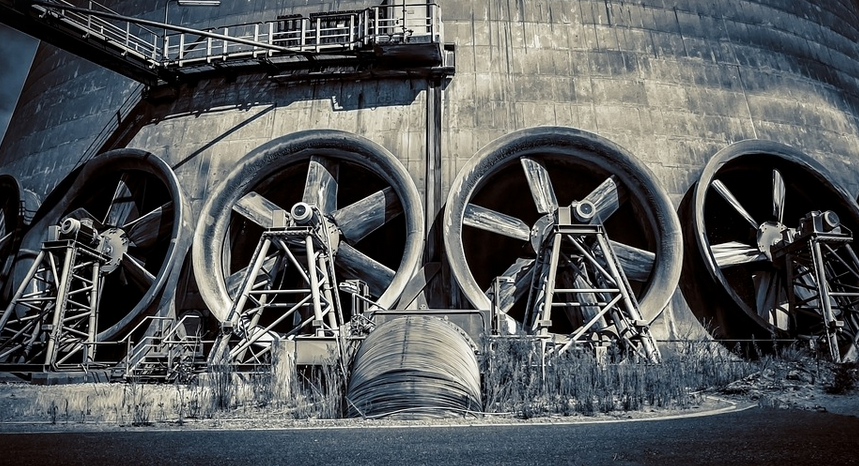
Rubber Gaskets For Pipes: Your Go-To Solution
The Unsung Heroes of Plumbing
Imagine this: you’ve just finished a plumbing project, everything is sparkling clean and tight, the pipes are secured, the water flows freely… But then, something pops up. A leaking pipe! It happens more than we like to admit, right?
It turns out there’s someone who can be considered the unsung hero of any plumbing project – a humble rubber gasket. These small but mighty components are basically the secret ingredient to a leak-free and highly functional plumbing system.
What is a Rubber Gasket?
Rubber gaskets are essentially flexible, rubbery rings or seals that fit snugly around pipes and fittings. They play an essential role in creating a tight seal between two surfaces, preventing leaks and ensuring efficient water flow.
Think of them as the “glue” holding everything together, keeping your plumbing system from becoming a leaky mess. Their ability to withstand pressure, temperature changes, and even corrosive fluids makes them invaluable across various industries like automotive, industrial, and residential construction.
Why Rubber Gaskets are Essential
There’s more to rubber gaskets than just preventing leaks. They offer several other benefits that contribute to overall plumbing system efficiency:
1. **Leak Prevention:** Let’s be honest, leaks are a pain – literally! When pipes start to leak, it can lead to water damage, costly repairs, and even mold growth. Rubber gaskets create an airtight seal, preventing unwanted water from seeping out of the joints.
2. **Water Pressure Control:** Water pressure fluctuations is another big problem for plumbing systems. Rubber gaskets ensure a consistent flow by sealing against sudden changes in pressure, keeping your plumbing system running smoothly.
3. **Temperature Resistance:** From scorching hot summers to freezing winter months, rubber gaskets are designed to withstand different temperatures without losing their effectiveness. They keep the pipes from expanding and contracting due to temperature variations, ensuring long-term durability.
4. **Corrosion Protection:** Rubber gaskets are chemically resistant – they can handle a variety of chemicals, preventing corrosion and rusting in your piping system, extending its lifespan.
5. **Ease of Installation:** Rubber gaskets are easy to install and use, they require minimal effort and specialized tools. This makes them ideal for DIY plumbing projects or even professional maintenance routines.
Types of Rubber Gaskets
There’s a whole world of rubber gasket options available! You’ll find the right type depending on your specific application:
1. **Flanges:** When dealing with bolted flanges, you need specifically designed gaskets to create a reliable seal. These gaskets are often made from special types of elastomers, like EPDM or Viton, that offer resistance against extreme temperatures and chemical exposure.
2. **Pipe Fittings:** Gaskets for pipe fittings, like elbows, reducers, and unions, play an equally vital role in ensuring a tight seal between the fitting and the pipe. These gaskets are designed to be compatible with specific piping materials and diameters, offering optimal performance.
3. **Specialized Gaskets:** For highly demanding applications, specialized gaskets are used. They might be made from advanced elastomers like PTFE or Silicon for situations where extreme pressure or corrosive conditions prevail.
Material Matters: Choosing the Right Rubber Gasket
When it comes to rubber gaskets, material is king! The right gasket will depend on several factors:
1. **Pressure and Temperature:** The type of gasket you choose must be compatible with the pressure and temperature range your system operates at. For example, a high-pressure application might require thicker or more durable gaskets.
2. **Pipe Material:** Gaskets come in different materials to ensure compatibility with various pipe materials like copper, PVC, stainless steel, and others.
3. **Chemical Resistance:** If you’re dealing with harsh chemicals or corrosive substances, choose a gasket made from Teflon, Viton, or even EPDM, which offer excellent chemical resistance.
4. **Budget and Availability:** Consider your budget and the availability of different gasket types. For instance, some gaskets might be more readily available locally than others in certain locations.
5. **Consult a Professional:** Always consult with a plumbing professional for advice on choosing the right rubber gasket type for your specific requirements, ensuring optimal performance and long-term reliability.
The Importance of Regular Maintenance
Even though rubber gaskets are incredibly resilient, they can be affected by time and environment. Just like any other part of your plumbing system, regular maintenance is crucial to keep them in top condition:
1. **Inspection:** Periodically inspect the gaskets for signs of wear and tear, cracks, or deformation. This helps prevent leaks before you notice them.
2. **Proper Cleaning:** Clean the gasket periodically with a suitable solvent to remove dirt, grime, or debris that can impact its function.
3. **Replacement:** For heavily worn or damaged gaskets, replacement is the best option to ensure optimal performance. Replacing them regularly prevents leaks and ensures the longevity of your plumbing system.
4. **Proper Storage:** When storing rubber gaskets, keep them in a cool, dry place away from direct sunlight. This helps maintain their flexibility and lifespan for future use.
5. **Expert Consultation: ** If you’re unsure about a gasket issue or need professional assistance with maintenance, don’t hesitate to consult a plumbing expert!
Conclusion
Rubber gaskets are the unsung heroes of any plumbing project. They ensure leak-free connections, efficient water flow, and long-lasting performance. Choosing the right type of gasket for your piping system is crucial in maintaining optimal functionality and preventing costly repairs down the line. Remember to prioritize regular maintenance and consult a professional when necessary.